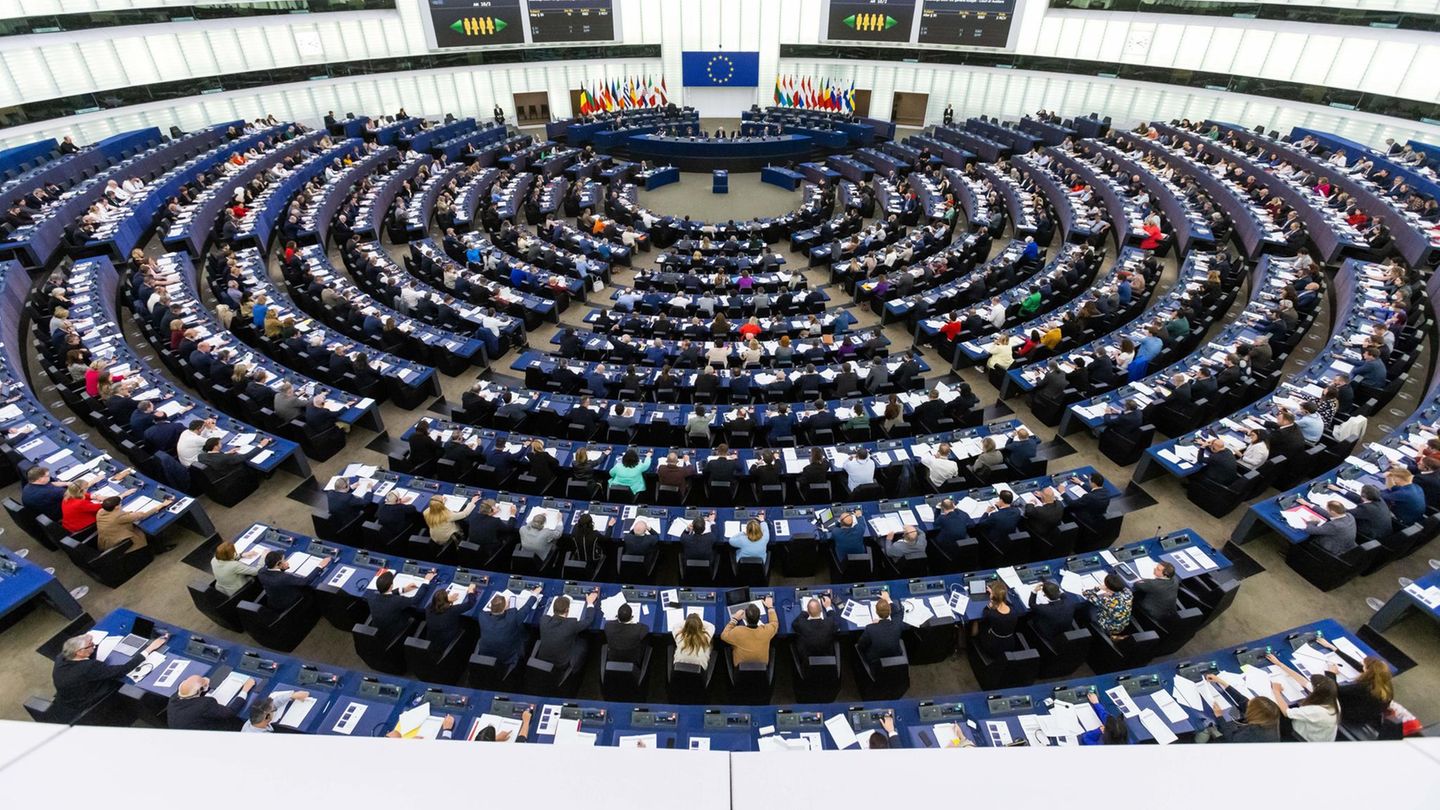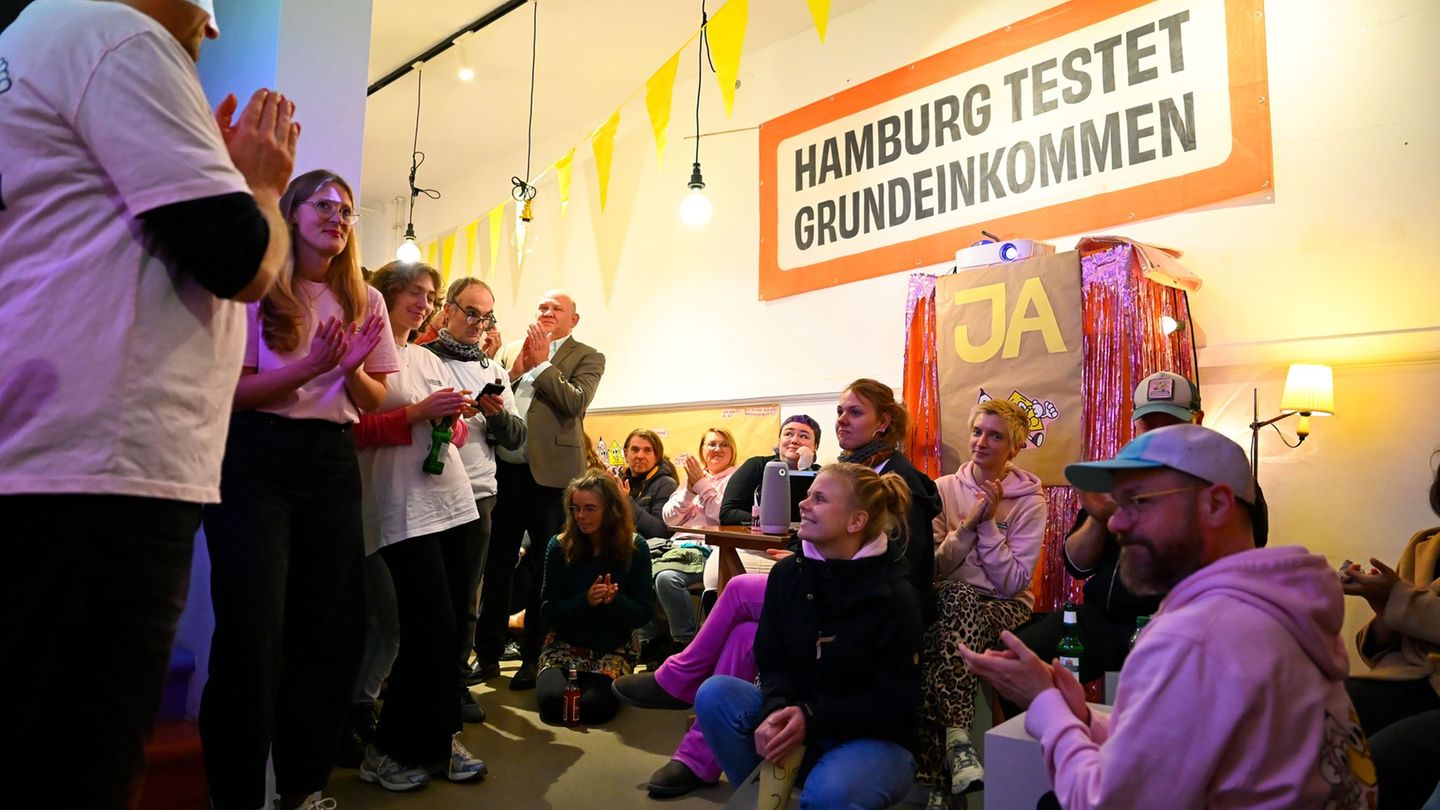In all probability, investments in certain gas and nuclear power plants in the EU can be classified as climate-friendly. Opponents in the European Parliament were unable to stop such plans with a vote on Wednesday.
In all probability, investments in certain gas and nuclear power plants in the EU can be classified as climate-friendly. Opponents in the European Parliament were unable to stop such plans with a vote on Wednesday.
Instead of the required 353 MPs, only 278 voted against the legal act on the so-called taxonomy in the plenary session in Strasbourg. An absolute majority of 353 of the 705 deputies would have been required for the blockade. The majority of the Greens, Social Democrats and left-wing groups in the EU Parliament had previously announced that they would vote against the inclusion of nuclear and gas in the taxonomy. The conservative EPP group, which includes German CDU and CSU MEPs, was divided.
Specifically, the vote was about a supplementary legal act on the so-called taxonomy of the EU. It is a classification system designed to steer private investment into sustainable economic activities and thus support the fight against climate change. It is relevant for companies because it influences the investment decisions of investors and could therefore have an impact on the financing costs of projects, for example. Investors should also be able to avoid investments in climate-damaging economic sectors.
France for nuclear, Germany for gas
According to the Commission’s proposal, licenses issued for new nuclear power plants up to around 2045 could fall under the taxonomy regulation. With the help of this regulation, the EU wants to implement its “Green Deal” and become climate-neutral by 2050. According to the EU Commission, 350 billion euros are required for this every year. The taxonomy is intended to help mobilize private funds for climate goals.
As a first step, a decision was made last year to classify electricity production with solar panels, hydroelectric power or wind power as climate-friendly. In addition, criteria have been defined for numerous other economic sectors. For example, they regulate that passenger and freight trains can be classified as climate-friendly without direct CO2 emissions.
At the end of last year, under pressure from some member states, the EU Commission responsible for legislative proposals also proposed classifying investments in gas and nuclear power plants as climate-friendly under certain conditions. France, which sees nuclear power as a key technology for a CO2-free economy and would like to continue exporting the technology to other countries, played a decisive role in this. In return, Germany advocated a green label for gas as a transitional technology.
The implementation of the Commission’s proposal can still be prevented if at least 20 EU states, representing at least 65 percent of the total population of the EU, join forces by July 11th. However, given the interest of many states in the use of nuclear power, it is considered impossible that a corresponding majority will be achieved in the Council of the EU.
Environmentalists criticize taxonomy
Before the vote, environmentalists had urged MEPs to vote against the new taxonomy act. Among other things, they criticize the fact that greenhouse gases are emitted when energy is generated using natural gas. In the case of nuclear power, the main problem is the waste, but also possible accidents. Recently, opponents have also argued that incentives to invest in the construction of new gas-fired power plants stand in stark contrast to efforts to become independent of Russian gas.
Greenpeace announced on Wednesday after the vote that it would take legal action against the commission. Environmentalists accuse the EU Commission of “greenwashing”.
Proponents, on the other hand, point to the need for transitional technologies and to the fact that liquid gas, for example from the USA, or hydrogen can also be used to operate gas-fired power plants.
Source: Stern
David William is a talented author who has made a name for himself in the world of writing. He is a professional author who writes on a wide range of topics, from general interest to opinion news. David is currently working as a writer at 24 hours worlds where he brings his unique perspective and in-depth research to his articles, making them both informative and engaging.




